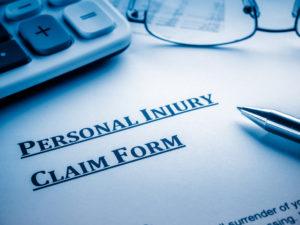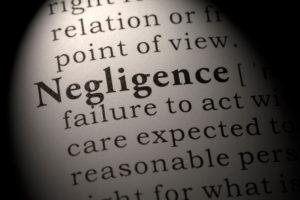
The basics of personal injury claims include aspects such as legal liability, damages and evidence. Claims also include a smattering of other legal details that vary according to exactly what type of accident and injury occurred.
Personal Injury Claims: The Legal Liability Lowdown
One of the most fundamental parts of an injury claim is the legal liability aspect. If you (the plaintiff) want to file a personal injury claim, you’ll have to meet the four following basic requirements concerning liability:
- Duty of Care - You’ll have to prove that the other party (the defendant) had a legal obligation to maintain reasonable care. For example, drivers have a responsibility or a -duty of care- not to endanger others on the road.
- Negligence - You’ll have to show that the defendant acted negligently or carelessly. Was he or she texting and driving or driving while intoxicated, for example?
- Causation - Additionally, you’ll have to demonstrate that it was the defendant’s negligence that caused your injuries. Using the above example, if a driver was using a mobile device while driving, you could be able to show that it was the driver’s carelessness that caused the accident.
- Damages - You’ll have to calculate the total amount of damages you suffered and be able to present this information effectively to the insurance company and/or courts.
Determining and Calculating Damages
Carefully evaluating the damages from an accident is vital in determining how much to seek in a settlement. However, determining and calculating damages for a personal injury claim can be somewhat complicated because not all damages are easy to quantify.
There are two basic types of compensatory damages:
- Monetary - Monetary losses are generally easily to calculate and include damages such as medical expenses, lost wages, court costs and property damage.
- Non-Monetary - Losses that don’t have a dollar amount assigned to them are more difficult to account for and include losses such as pain and suffering and loss of consortium.
There is also a different category of damages, called punitive damages, which were awarded in about 5 percent of personal injury cases in 2005, according to the U.S. Department of Justice (USDOJ). Punitive damages are those awarded not to compensate the victim but to punish the defendant, particularly if he or she acted in a reprehensible or an outrageously negligent manner.
Demonstrating Damages through Evidence
You’ll have to prove to the court and/or insurance companies not only the value of your damages, but also that the other party acted negligently and caused the accident. Establishing fault and the damages you suffered can require a number of resources and evidence, including:
- police reports;
- witness testimonies;
- field experts;
- medical records and bills;
- medical prognoses;
- damage reports and repair estimates; and
- other discovery documents.
For a free legal consultation, call (614) 538-1116
Because determining, calculating, and proving damages are important in any personal injury case, it’s good practice to compile an accident file and keep it up-to-date. Collect any pertinent paperwork, place it in the file for safe keeping and share it with your attorney. The information in the file could be extremely instrumental to your case.
The Nitty-Gritty of Injury Cases
Personal injury claims also comprise a plethora of legal details, such as:
- statutes of limitation;
- numerous laws and case procedures;
- collectability (the defendant’s ability to pay the damage award); and
- partial fault and comparative negligence.
Because navigating personal injury law can be cumbersome, claimants often benefit from working with a personal injury attorney.
Legal Counsel from a Personal Injury Attorney in Worthington
Although there are core elements that make up all injury claims, each case is unique and will be handled on a case-by-case basis by the courts or insurance companies. To understand how best to approach your case after suffering an injury, contact an attorney who specializes in personal injury.
If you need a personal injury attorney in Worthington, David Bressman can help guide you through the legal process. Contact Bressman Law today at (614) 538-1116 for a free consultation regarding a personal injury claim.
Call or text (614) 538-1116 or complete a Free Case Evaluation form








